 Existential Comics raises an interesting question (thanks to Micha for pointing it out). In the strip a doctor with a machine that measures consciousness (rather like Tononi’s new machine, except that that measures awareness) tells an unlucky patient he lacks the consciousness-producing part of the brain altogether. Consequently, the doctor says, he is legally allowed to harvest the patient’s organs.
Existential Comics raises an interesting question (thanks to Micha for pointing it out). In the strip a doctor with a machine that measures consciousness (rather like Tononi’s new machine, except that that measures awareness) tells an unlucky patient he lacks the consciousness-producing part of the brain altogether. Consequently, the doctor says, he is legally allowed to harvest the patient’s organs.
Would that be right?
We can take it that what the patient lacks is consciousness in the ‘Hard Problem’ sense. He can talk and behave quite normally, it’s just that when he experiences things there isn’t ‘something it is like’; there’s no real phenomenal experience. In fact, he is a philosophical zombie, and for the sake of clarity I take him to be a strict zombie; one of the kind who are absolutely like their normal human equivalent in every important detail except for lacking qualia (the cartoon sort of suggests otherwise, since it implies an actual part of the brain is missing, but I’m going to ignore that).
Would lack of qualia mean you also lacked human rights and could be treated like an animal, or worse? It seems to me that while lack of qualia might affect your standing as a moral object (because it would bear on whether you could suffer, for example), it wouldn’t stop you being a full-fledged moral subject (you would still have agency). I think I would consequently draw a distinction between the legal and the moral answer. Legally, I can’t see any reason why the absence of qualia would make any difference. Legal personhood, rights and duties are all about actions and behaviour, which takes us squarely into the realm of the Easy Problem. Our zombie friend is just like us in these respects; there’s no reason why he can’t enter into contracts, suffer punishments, or take on responsibilities. The law is a public matter; it is forensic – it deals with the things dealt with in the public forum; and it follows that it has nothing to say about the incorrigibly private matter of qualia.
Of course the doctor’s machine changes all that and makes qualia potentially a public matter (which is one reason why we might think the machine is inherently absurd, since public qualia are almost a contradiction in terms). It could be that the doctor is appealing to some new, recently-agreed legislation which explicitly takes account of his equipment and its powers. If so, such legislation would presumably have to have been based on moral arguments, so whichever way we look at it, it is to the moral discussion that we must turn.
This is a good deal more complicated. Why would we suppose that phenomenal experience has moral significance? There is a general difficulty because the zombie has experiences too. In conditions when a normal human would feel fear, he trembles and turns pale; he smiles and relaxes under the influence of pleasure; he registers everything that we all register. He writes love poetry and tells us convincingly about his feelings and tastes. It’s just that, on the inside, everything is hollow and void. But because real phenomenal experience always goes along with zombie-style experience, it’s hard for us to find any evidence as to why one matters when the other doesn’t.
The question also depends critically on what ethical theories we adopt. We might well take the view that our existing moral framework is definitive, authorised by God or tradition, and therefore if it says nothing about qualia, we should take no account of them either. No new laws are necessary, and there can be no moral reason to allow the harvesting of organs.
In this respect I believe it is the case that medieval legislatures typically saw themselves, not as making new laws, but as rediscovering the full version of old ones, or following out the implications of existing laws for new circumstances. So when the English parliamentarians wanted to argue against Charles I’s Ship Tax, rather than rest their case on inequity, fiscal distortion, or political impropriety, they appealed to a dusty charter of Ine, ancient ruler of Wessex (regrettably they referred to Queen Ine, whereas he had in fact been a robustly virile King).
Even within a traditional moral framework, therefore, we might find some room to argue that new circumstances called for some clarification; but I think we would find it hard going to argue for the harvesting.
What if we were utilitarians, those people who say that morality is acting to bring about the greatest happiness of the greatest number? Here we have a very different problem because the utilitarians are more than happy to harvest your organs anyway if by doing so they can save more than one person, no matter whether you have qualia or not. This unattractive kind of behaviour is why most people who espouse a broadly utilitarian framework build in some qualifications (they might say that while organ harvesting is good in principle actual human aversion to it would mean that in practice it did not conduce to happiness overall, for example).
The interesting point is whether zombie happiness counts towards the utilitarian calculation. Some might take the view that without qualia it had no real value, so that the zombie’s happiness figure should be taken as zero. Unfortunately there is no obvious answer here; it just depends what kind of happiness you think is important. In fact some consequentialists take the utilitarian system but plug into it desiderata other than happiness anyway. It can be argued that old-fashioned happiness utilitarianism would lead to us all sitting in boxes that directly stimulated our pleasure centres, so something more abstract seems to be needed; some even just speak of ‘utility’ without making it any more specific.
No clear answer then, but it looks as if qualia might at least be relevant to a utilitarian.
What about the Kantians? Kant, to simplify somewhat, thought we should act in accordance with the kind of moral rules we should want other people to adopt. So, we should be right to harvest the organs so long as we were content that if we ourselves turned out to be zombies, the same thing would happen to us. Now I can imagine that some people might attach such value to qualia that they might convince themselves they should agree to this proposition; but in general the answer is surely negative. We know that zombies behave exactly like ordinary people, so they would not for the most part agree to having their organs harvested; so we can say with confidence that if I were a zombie I should still tell the doctor to desist.
I think that’s about as far as I can reasonably take the moral survey within the scope of a blog post. At the end of the day, are qualia morally relevant? People certainly talk as if they are in some way fundamental to value. “Qualia are what make my life worth living” they say: unfortunately we know that zombies would say exactly the same.
I think most people, deliberately or otherwise, will simply not draw a distinction between real phenomenal experience on one hand and the objective experience of the kind a zombie can have on the other. Our view of the case will in fact be determined by what we think about people with and without feelings of both kinds, rather than people with and without qualia specifically. If so, qualia sceptics may find that grist to their mill.
Micha has made some interesting comments which I hope he won’t mind me reproducing.
The question of deontology vs consequentialism might be involved. A deontologist has less reason — although still some — to care about the content of the victim’s mind. Animals are also objects of morality; so the whole question may be quantitative, not qualitative.
Subjects like ethics aren’t easy for me to discuss philosophically to someone of another faith. Orthodox Judaism, like traditional Islam, is a legally structured religion. Therefore ethics aren’t discussed in the same language as in western society, since how the legal system processes revelation impacts conclusion.
In this case, it seems relevant that the talmud says that someone who kills adnei-hasadeh (literally: men of the field) is as guilty of murder as someone who kills a human being. It’s unclear what the talmud is referring to: it may be a roman mythical being who is like a human, but with an umbilicus that grows down to roots into the earth, or perhaps an orangutan — from the Malay for “man of the jungle”, or some other ape. Whatever it is, only actual human beings are presumed to have free will. And yet killing one qualifies as murder, not the killing of an animal.


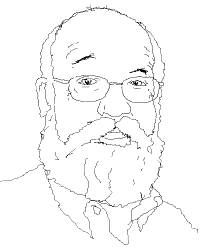
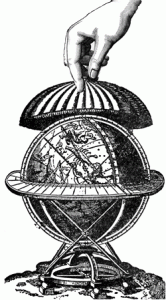
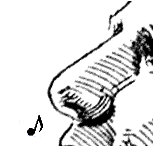
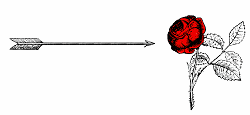 Sometimes mistakes can be more interesting than getting it right. Last week I was thinking about Pauen’s claim, reasonable enough, that belief in qualia is ultimately based on the intuitive sense that experience and physics are two separate realms. The idea that subjective stuff, the redness of red and so on, could be nothing but certain jigs danced by elementary particles, provokes a special incredulity. What’s the famous quote that sums that up, I thought? Something about…
Sometimes mistakes can be more interesting than getting it right. Last week I was thinking about Pauen’s claim, reasonable enough, that belief in qualia is ultimately based on the intuitive sense that experience and physics are two separate realms. The idea that subjective stuff, the redness of red and so on, could be nothing but certain jigs danced by elementary particles, provokes a special incredulity. What’s the famous quote that sums that up, I thought? Something about… One way of setting up the vexed question of qualia is to claim that there is an explanatory gap between what science tells us about our sensory organs and nervous system on the one hand, and actual real experience on the other. Nothing in the biological/physical story, it’s claimed, tells us what the redness of a rose or the smell of violets is actually like, and nothing of that kind ever could. The two aspects of the experience do not connect with each other. In the latest JCS, Michael Pauen sets out to show us that that supposed gap does not exist.
One way of setting up the vexed question of qualia is to claim that there is an explanatory gap between what science tells us about our sensory organs and nervous system on the one hand, and actual real experience on the other. Nothing in the biological/physical story, it’s claimed, tells us what the redness of a rose or the smell of violets is actually like, and nothing of that kind ever could. The two aspects of the experience do not connect with each other. In the latest JCS, Michael Pauen sets out to show us that that supposed gap does not exist.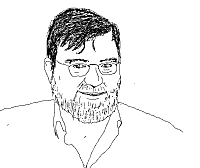 There is a lot of interesting stuff over at the
There is a lot of interesting stuff over at the  The Conscious Mind was something of a blockbuster, as serious philosophical works go, so a big new book from David Chalmers is undoubtedly an event. Anyone who might have been hoping for a recantation of his earlier views, or a radical new direction, will be disappointed – Chalmers himself says he is a little less enthusiastic about epiphenomenalism and a little more about a central place for intentionality, and that’s about it. The Character of Consciousness is partly a consolidation, bringing together pieces published separately over the last few years; but the restatement does also show how his views have developed, broadening into new areas while clarifying and reinforcing others.
The Conscious Mind was something of a blockbuster, as serious philosophical works go, so a big new book from David Chalmers is undoubtedly an event. Anyone who might have been hoping for a recantation of his earlier views, or a radical new direction, will be disappointed – Chalmers himself says he is a little less enthusiastic about epiphenomenalism and a little more about a central place for intentionality, and that’s about it. The Character of Consciousness is partly a consolidation, bringing together pieces published separately over the last few years; but the restatement does also show how his views have developed, broadening into new areas while clarifying and reinforcing others.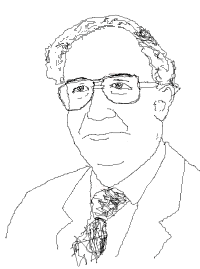 Peter Hacker made a surprising impact with his
Peter Hacker made a surprising impact with his